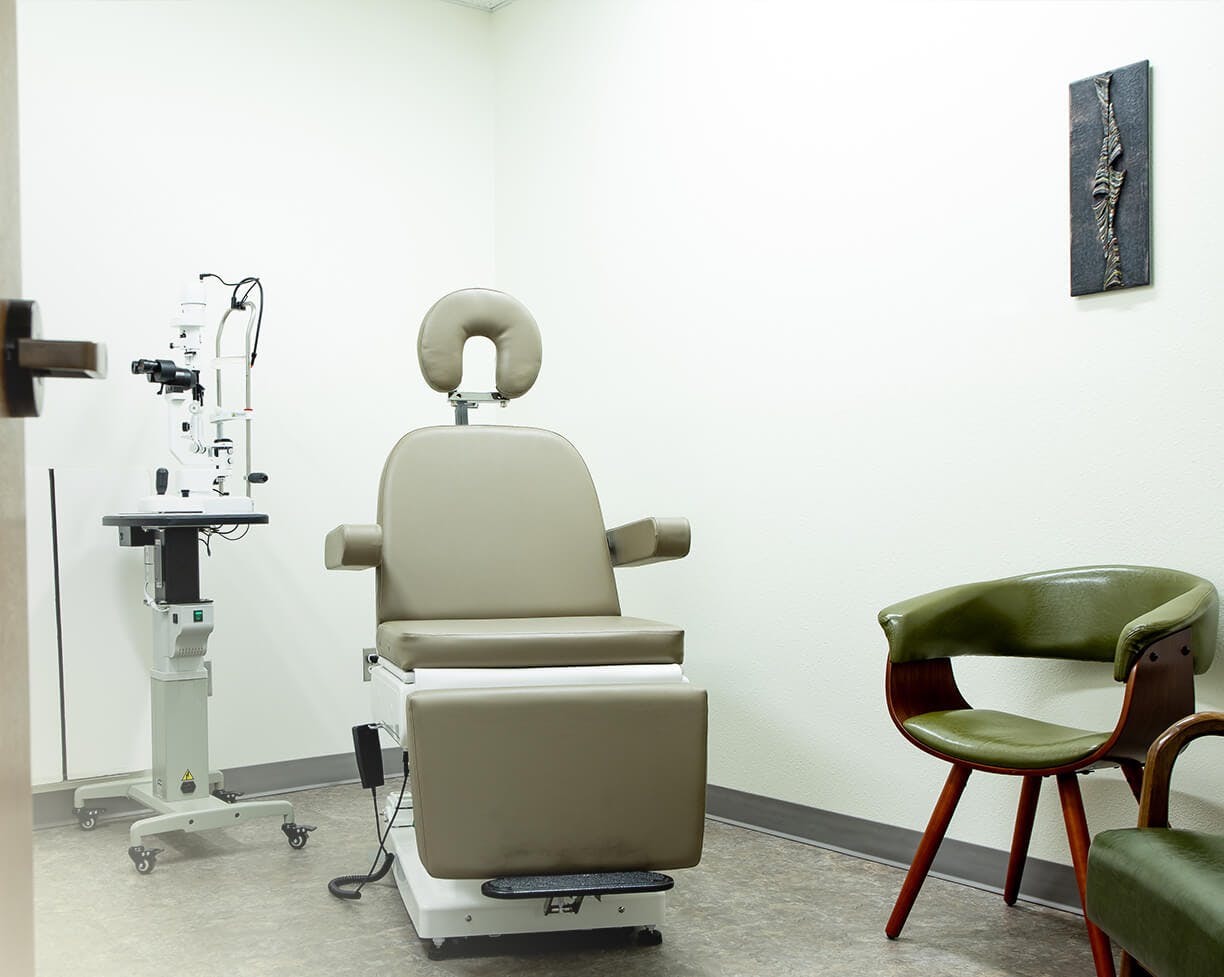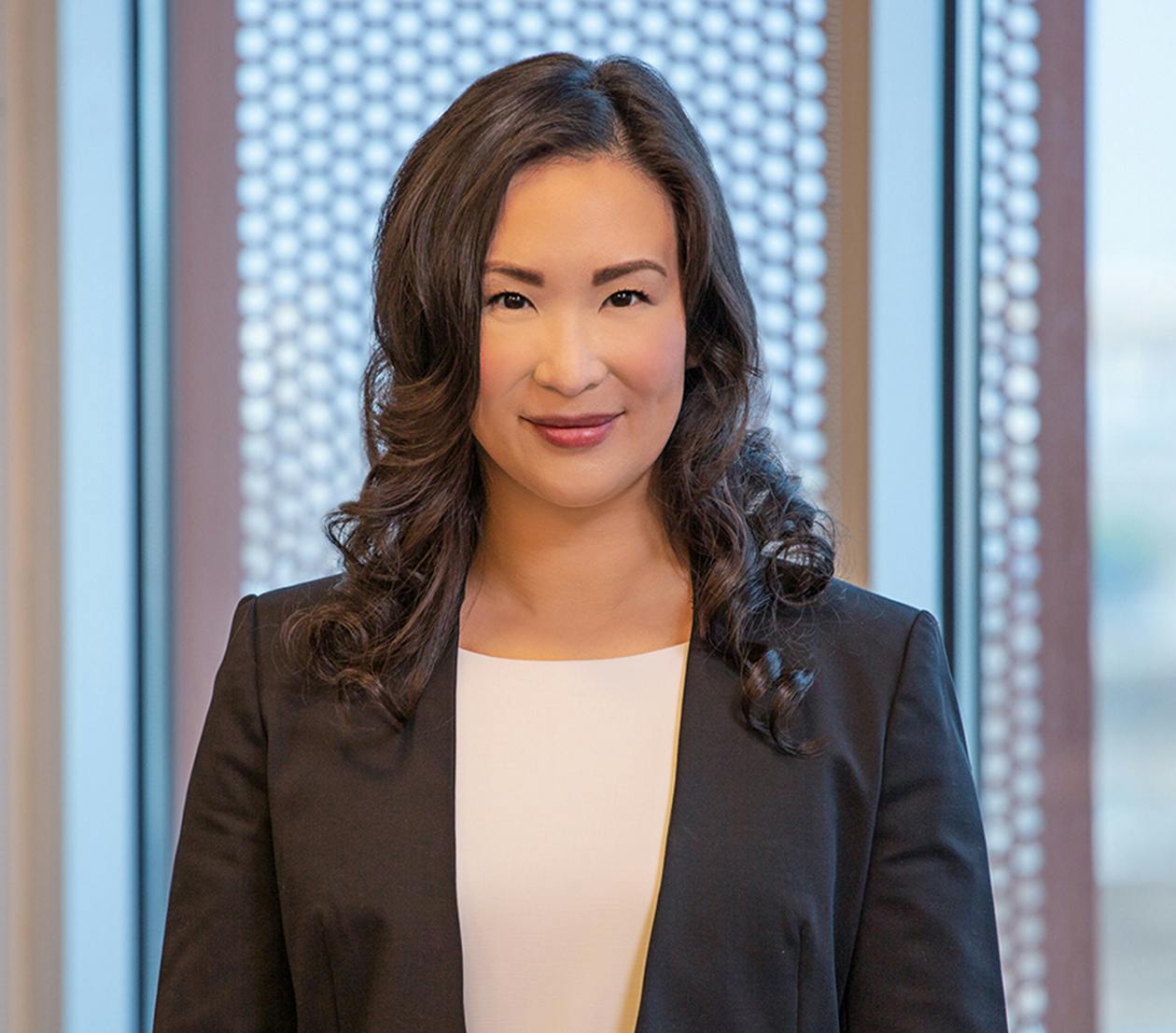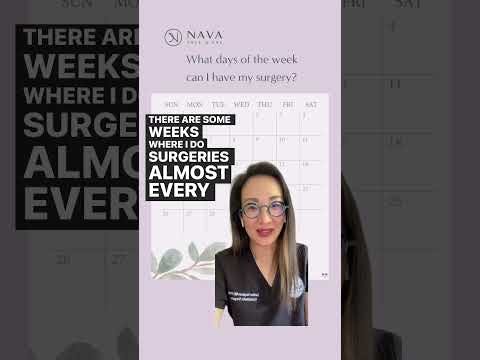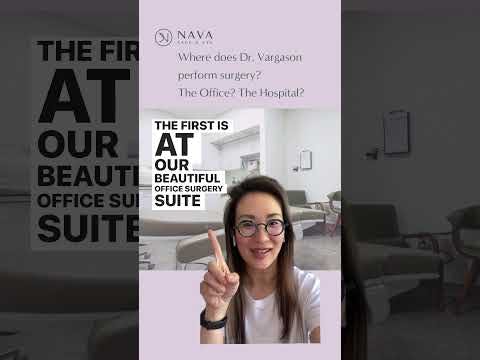Below is a list of helpful do’s and don’ts for your surgery with Dr. Caroline Vargason. During your pre-surgery appointment, each of these points will be discussed with a member of our staff.

Before Surgery
Will I need a medical exam to clear me for surgery?
This is determined from patient to patient. If a physical exam is required, you should see your primary care doctor 2-4 weeks before surgery. Most surgeries provided by Nava Face & Eye are one hour long, which puts minimal stress on your system. You may wish to discuss your blood pressure with your physician before surgery.

Questions About Medications
Do I need to stop taking blood thinners before my surgery?
Yes. Under the guidance of your primary care physician, we will ask that you stop taking the following medications before surgery:
- Aspirin or Plavix – 7 days before surgery.
- Motrin, Advil, and other non-steroidal anti-inflammatory medicines – 7 days before surgery.
- Coumadin – 5 days before surgery.
- Other medications and supplements will be reviewed at your office visit.
Tylenol is acceptable to use as needed. Our office will contact you the week before surgery to remind you to stop using blood thinners.
I take insulin daily. Should I still do this before surgery?
For those who have diabetes and require insulin, you will be given specific instructions on the dosage to take on the morning of your surgery.
If I cannot stop using blood thinners, can I still have surgery?
This will vary. If you cannot stop using blood thinners, we can discuss your options.
I have a cold or fever. Should I postpone my surgery?
Possibly. Please contact Dr. Vargason’s office 24 to 48 hours before your scheduled surgery to evaluate your condition.

Other Pre-Surgery Questions
How long will it take for my insurance to approve my surgery?
If your surgery requires a pre-authorization from your insurance, we will try to have your procedure approved within four weeks.
Can I cancel or reschedule my surgery?
Yes. Please contact Dr. Vargason’s office at least one week before your scheduled surgery. This allows us to reschedule your surgery and help other patients waiting for their procedures.
What should I do if I still have questions for Dr. Vargason about my surgery?
Please call our experienced staff at the office. They will be able to answer many of your questions. If your question cannot be answered, it will promptly be passed along to the doctor.
On the day of your surgery, you will have time to discuss any remaining questions with Dr. Vargason.

Day of Surgery Information
What should I do to prepare for my surgery?
- If your surgery requires an IV or general anesthesia, do not eat any food after midnight the night before surgery. This includes no gum, no hard candy, no chewing tobacco. Before surgery, you will receive a phone call with more specific instructions.
- It is ok to take your medicines in the morning using only a sip of water (except for blood thinners).
- You will need to bring a driver to drive you home after surgery.
What time should I arrive for my surgery?
Depending on the location of your surgery, our office or the Surgery Center will call you with your arrival time for your procedure.
Will I have stitches that need to be taken out?
After most Eyelid Surgeries, you will have stitches that remain in place for one week. They will be removed in the office at your 1-week post-surgery appointment.
After Tear Duct Surgery, you may have dissolvable stitches on the side of your nose. A small plastic (silicone) tube will be placed into your tear drainage pipes. The tube will stay in place for about six months and be removed in the office.
For Mohs Surgery: where will my surgery be performed?
For eyelid cancer patients having Mohs Surgery with a Dermatologist, you will have the Mohs Surgery either the same day or up to 2 days prior to eyelid surgery. After your Dermatologist removes the skin cancer, a patch will be placed over the eye. You will go to the Surgery Center for eyelid reconstruction surgery with Dr. Vargason.
Will my eye(s) be patched after eyelid surgery?
Usually no. Most eyelid patients do not require an eye patch. However, some Mohs (skin cancer) surgeries require that you wear a patch for one day to one week after the surgery.

What Type of Anesthesia Will I Receive?
If your surgery is at the office, you may take a relaxing pill (Valium). If your surgery is at the Surgery Center or Hospital, you will have an IV line placed to receive relaxing medications. The anesthesia team will meet with you before your surgery to determine what type of anesthesia will be used.
Most surgeries at the Surgery Center or Hospital are done with a “twilight” anesthesia. After entering the operating room, you will be given relaxing medicine so that you will not feel the numbing injections. During the surgery, you will remain drowsy. Some surgeries are done under “general” anesthesia, where you are asleep for the entire surgery. If required, Dr. Vargason will discuss this with you at your consultation.
After Surgery Information
What should I do to recover after my surgery?
Recovery varies from patient to patient.
Pain
Discomfort is usually minimal and is typically relieved with Tylenol (acetaminophen). Aspirin-containing medications and non-steroidal anti-inflammatory products (Advil, Motrin, Ibuprofen) should be avoided for one week after surgery if possible.
Ice packs
Your recovery will proceed quickly if you rest and use ice packs on your eyelids for the first two days. Use ice packs (frozen peas or corn in a zip lock bag work great) on and off for about half the time when you are awake.
Warm compresses
After 2 days, stop using ice packs and switch to warm compresses. You may use a wet washcloth heated in the microwave for 10-15 seconds or a beaded mask that can be purchased at drug stores. Use the warm compress for 10 minutes, three times per day, until bruising subsides.
Head elevation
Keep your head above your heart when you rest or sleep. This will help keep swelling down. Start your night’s rest on two pillows or in a recliner for 2 to 3 days after your surgery.
Medications
After surgery, medications, use the prescribed antibiotic ointment on the stitches and in your eyes four times a day, with the last application at bedtime. Use a small amount of ointment (less than a pea-sized amount). Apply the ointment with a clean finger or a Q-tip. Continue the ointment until your return visit. The ointment is safe to be placed in your eyes and will blur your vision. You may use over-the-counter artificial tears during the day as often as you feel necessary to help with any discomfort.
Tear duct surgery
Do not forcefully blow your nose for two weeks. Saline nose spray will help reduce, but not eliminate, the stuffy nose feeling.

When to Resume Normal Activities
When can I restart my medications and blood thinners after surgery?
Resume your regular medications (other than blood thinners) after you arrive home from your surgery.
Resume your blood thinner the day after your surgery or as directed by the doctor who prescribes these medications.
How long will I be bruised or swollen after my surgery?
Patient healing is variable, with some individuals healing much quicker than others. Most bruising resolves 1-2 weeks after the surgery. Most swelling resolves 2-3 weeks after the surgery. Swelling may take weeks to months to completely resolve.
How many days do I need to take off work after my surgery?
The amount of time taken off work varies from patient to patient. It also depends on the type of work you do. Most people can return to work after one week. Dr. Vargason can give you a more specific estimate based on your type of work.
When can I shower after my surgery?
You may shower 24 hours after surgery. You can wash your hair. It is best not to direct the shower water directly against your face for one week after surgery.
What type of activity is allowed after surgery?
You may resume light activities 48 hours after surgery. You may bend over but not lift more than 10 pounds for one week after surgery.
When can I wear makeup after my surgery?
After seeing Dr. Vargason for the first post-operative check-up, you may wear makeup if healing well. The appointment will be about one week after your surgery.
When can I return to exercising after my surgery?
If healing well, most patients can return to their regular exercise regimen after being seen for the first post-operative check-up, about one week after your surgery. Dr. Vargason can give you a more specific estimate based on the type of exercise you do.
What is “normal” healing after my surgery?
- It is normal for the eyelids to be sore and swollen. They should not be extremely painful.
- A small amount of oozing from the areas where stitches were placed is normal for the first 24-48 hours after surgery.
- Bruising of the eyelids is normal. Some bruising may be present at the end of your surgery. It is normal for the bruising and swelling to worsen over the first few days and can last ten days or more.
- Often the bruising and swelling can descend into the cheeks or even your chin.
- Infections are uncommon with this type of surgery. If your pain increases over the days following surgery, or if you experience more than a mild discharge, please let us know.

Emergencies
Who do I contact for questions or emergencies?
Bleeding behind the eye is extremely rare but can severely damage your vision. Please call us immediately if:
- You have extreme pain
- Your eyes swell closed
- You cannot see
Overnight or Weekends: After your surgery, you will be given a phone number to call in case of an emergency.

Thank you!
Our staff appreciates your confidence and trust in our care.
Nava Face & Eye looks forward to giving you a safe and successful experience.


